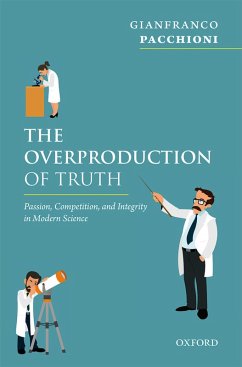The way science is done has changed radically in recent years. Scientific research and institutions, which have long been characterized by passion, dedication and reliability, have increasingly less capacity for more ethical pursuits, and are pressed by hard market laws. From the vocation of a few, science has become the profession of many -- possibly too many. These trends come with consequences and risks, such as the rise in fraud, plagiarism, and in particular the sheer volume of scientific publications, often of little relevance. The solution? A slow approach with more emphasis on quality rather than quantity that will help us to rediscover the essential role of the responsible scientist. This work is a critical review and assessment of present-day policies and behavior in scientific production and publication. It touches on the tumultuous growth of scientific journals, in parallel with the growth of self-declared scientists over the world. The author's own reflections and experiences help us to understand the mechanisms of contemporary science. Along with personal reminiscences of times past, the author investigates the loopholes and hoaxes of pretend journals and nonexistent congresses, so common today in the scientific arena. The book also discusses the problems of bibliometric indices, which have resulted in large part from the above distortions of scientific life.
Dieser Download kann aus rechtlichen Gründen nur mit Rechnungsadresse in A, B, BG, CY, CZ, D, DK, EW, E, FIN, F, GR, HR, H, IRL, I, LT, L, LR, M, NL, PL, P, R, S, SLO, SK ausgeliefert werden.

